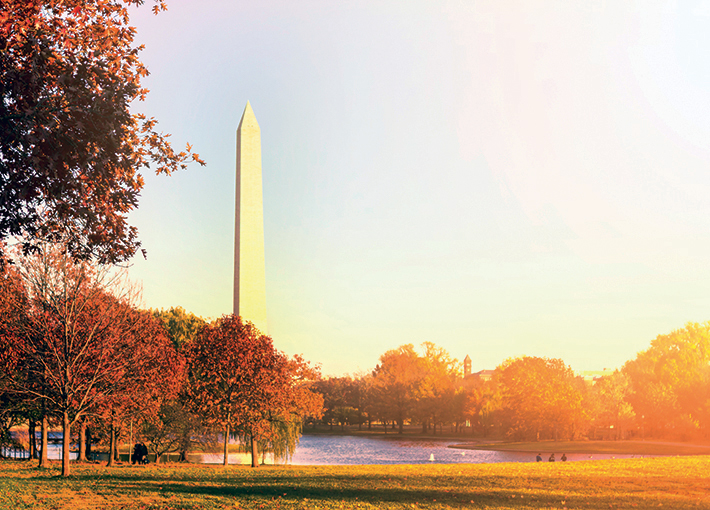
Fall Committee Weeks in Washington, D.C.
Thousands of ASTM International members will soon flock to Washington, D.C., over three committee weeks in October, November, and December to do what they do best: use their technical expertise to create and update standards.
The meeting location, in the U.S. capital, will also give them unique opportunities to engage government agencies, congressional staff, global trade associations, consumer groups, and others.
The meetings in Washington will help ASTM International staff and members make new connections that advance the organization’s mission and objectives. For example, attendees will be able to go to workshops with standards executives from U.S. federal agencies such as the Environmental Protection Agency, the Department of Homeland Security, and the Food and Drug Administration. These workshops are a natural outgrowth of regular interactions between those officials and ASTM International’s Washington-based staff, which includes Sarah Shoemaker, manager of government and industry affairs.
“We strive to serve as a key resource for standards executives and other public-sector leaders, because voluntary consensus standards are sometimes used to achieve regulatory goals,” Shoemaker says. “We know that the U.S. government prioritizes the use of voluntary consensus standards developed through robust participation from the private and public sectors.”
In addition to the workshops, there will be:
- A workshop coordinated by the homeland security applications (E54) and security systems and equipment (F12) committees (Oct.24),
- A panel discussion on the global role of standards in the medical device industry (Nov. 7), and
- On-site demonstrations of products like Compass and SpecBuilder.
Why the focus on Washington?
According to Shoemaker, “Not all government employees and policymakers are well-versed in standards-related issues. This is a great opportunity to educate and raise awareness of how consensus standards are crucial to global trade, economic growth, public health and safety, and more.”
She adds that the Washington staff often meets with policy leaders on topics ranging from children’s toys to additive manufacturing, while other meetings might involve trade associations and/or other standards development organizations.
“For example, we are a member of the Consultative Council, a group that raises awareness to the executive and legislative branches of the U.S. government of the many ways that standards and codes can improve and enhance buildings and infrastructure,” Shoemaker says.
ASTM International’s educational initiatives with the U.S. government are reinforced by two federal policies: the National Technology Transfer and Advancement Act of 1995 and the Office of Management and Budget Circular No. A-119, Federal Participation in the Development and Use of Voluntary Consensus Standards and in Conformity Assessment Activities. Both policies recognize the value and benefits of the government using voluntary consensus standards developed by SDOs and participating in a transparent and open process to develop such standards.
 SN Home
SN Home Archive
Archive Advertisers
Advertisers Masthead
Masthead RateCard
RateCard Subscribe
Subscribe Email Editor
Email Editor